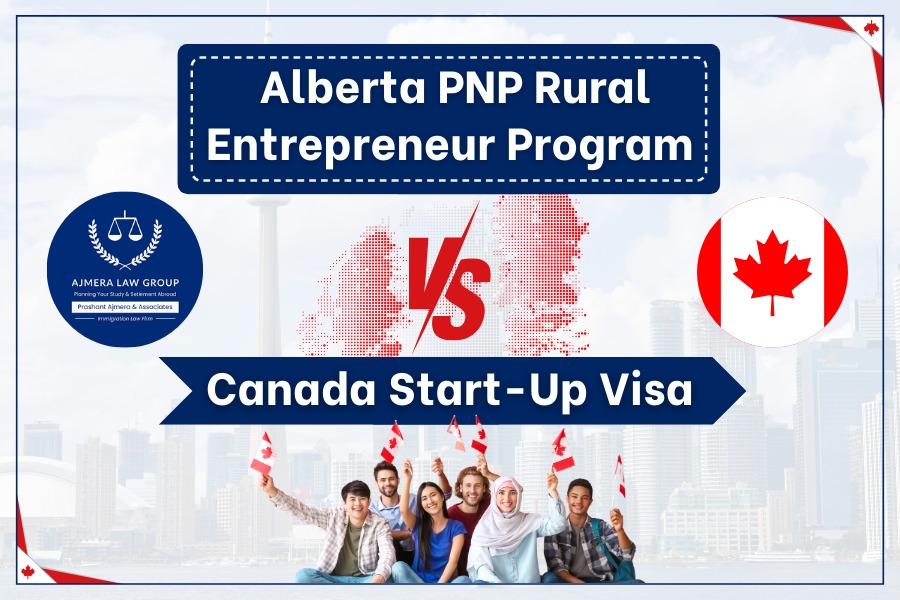Navigating Immigration Opportunities: A Comparative Analysis of Alberta PNP Rural Entrepreneur Program and Canada Start-Up Visa
Introduction:
As an experienced immigration lawyer, I recognize the importance of selecting the right immigration pathway that aligns with an individual’s goals and aspirations. In this blog post, we will conduct an in-depth comparison between the Alberta Provincial Nominee Program (PNP) Rural Entrepreneur Program and the Canada Start-Up Visa, shedding light on the distinctive features of each for aspiring immigrants.
Alberta PNP Rural Entrepreneur Program:
Designed to encourage entrepreneurial ventures in rural Alberta, the Rural Entrepreneur Program under the Alberta PNP aims to bolster economic development in less populated areas of the province.
Key Features:
- Regional Focus: The program specifically targets entrepreneurs willing to establish businesses in rural Alberta communities, contributing to local economic growth.
- Investment Requirement: Applicants must make a minimum investment in the proposed business and demonstrate their commitment to the long-term success of the venture.
- Job Creation: Successful candidates are expected to create jobs for Canadian citizens or permanent residents, fostering community development.
Canada Start-Up Visa Program:
The Canada Start-Up Visa Program is a federal initiative aimed at attracting innovative entrepreneurs who can contribute to the growth and competitiveness of the Canadian economy.
Key Features:
- Entrepreneurial Focus: The program targets individuals with a viable business idea and the potential to establish innovative and scalable enterprises.
- Designated Entities: Applicants must secure a commitment from designated Canadian entities, such as venture capital funds, angel investor groups, or business incubators.
- Permanent Residency Pathway: Successful candidates, along with their families, receive permanent residency, offering a direct pathway to Canadian citizenship.
Comparative Analysis:
- Geographic Focus: The Alberta PNP Rural Entrepreneur Program concentrates on fostering businesses in rural communities, and contributing to regional development. In contrast, the Canada Start-Up Visa has a broader national scope.
- Investment Requirements: While both programs have an investment component, the Alberta PNP Rural Entrepreneur Program emphasizes local economic impact, while the Canada Start-Up Visa focuses on the scalability and innovation of the proposed business.
- Long-Term Settlement: Both programs provide a pathway to permanent residency, offering immigrants the opportunity for long-term settlement in Canada.
Conclusion:
Choosing between the Alberta PNP Rural Entrepreneur Program and the Canada Start-Up Visa requires careful consideration of one’s entrepreneurial goals, geographic preferences, and the nature of the proposed business. As an expert immigration lawyer, I guide clients through this decision-making process, ensuring they understand the distinct features of each program and choose the pathway that aligns with their aspirations and contributes positively to their chosen community or the broader Canadian economy.
To explore your settlement options in Canada, schedule a consultation with Indian immigration lawyer Prashant Ajmera, the founder of Ajmera Law Group. Contact us at +919974253030 or email us at info@ajmeralaw.com. Discover the pathways to your American dream with expert legal guidance.



